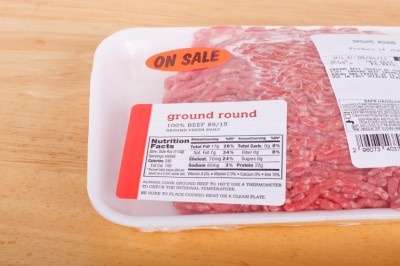MEP vote backs meat origin labelling

The vote, which will be repeated with all MEPs at a plenary in February, calls on the European Commission to set legislative proposals on the labelling of country of origin for all processed meat, as is already the case for bovine fresh meat. Four MEPs abstained from the vote.
The Committee hoped such regulation would “rebuild consumer confidence in the wake of the horse meat scandal and other food fraud cases”. However the reception from consumer and industry groups has been split.
The European Consumer Organisation (BEUC), which launched its latest campaign on the subject in September, said the vote was a step in the right direction but warned that if measures were voluntary this would fall short of the mark.
However, industry trade association FoodDrinkEurope said it was “disappointed” with the move, saying it failed to take on board the financial burden of such demands.
“The recent Commission report shows that imposing a 'one-size-fits-all' mandatory origin labelling would create many operational challenges for industry. It would require radical adaptations in the food chain, and would result in considerable additional costs for companies and public authorities, negatively impacting on competitiveness and trade.”
An expensive idea?
The Committee said a clearer picture of the impact on product prices was needed since figures from the Commission’s report and that of French consumer group Que Choisir had varied.
The Commission found the labelling would lead to a 15-50% price hike, while the French group suggested a ready-made lasagna would only increase by 1.5 cents (€).
BEUC said that it shared ENVI’s view that this variation called for a sharp review of the costs this would generate. It added: “Costs are at the heart of the debate.”
FDE said the Commission’s report had showed that the overall strong consumer interest in origin labelling ranked behind price and quality or sensory aspects in terms of factors affecting consumer choice. The report suggested consumers' ‘willingness to pay’ fell by 60-80% at price increases of less than 10%.
In its announcement of the result of the vote, ENVI said: “These proposals should enable European businesses to operate in an economically viable manner and in conditions compatible with the consumer’s purchasing power.”
The small print
The European Snacks Association (ESA) told our sister publication BakeryandSnacks.com that it would be lobbying against mandatory options – and said such a plan failed to take on the complexity of snack production which may use meat-based flavourings that only make up a tiny percentage of the final product.
Responding to such concerns, BEUC said its main focus was products with “substantial” amounts of the meat ingredient.
“We can understand why it would be hard to track ham for a pizza topping, for example,” Pauline Constant, BEUC communications officer, said.
The group said it was not against the idea of setting a minimum meat content requirement, although this had not been tabled by the Committee.
Yet it said this must meet consumers’ expectations. “For instance, some ready-made lasagna contain only 12% of meat. But to most consumers, meat is a key ingredient in lasagna. In that case, it would be fair to request origin labelling.”
FDE told us it was not aware of any discussions about setting a percentage, and did not say whether it considered this to be an area of concern.
























